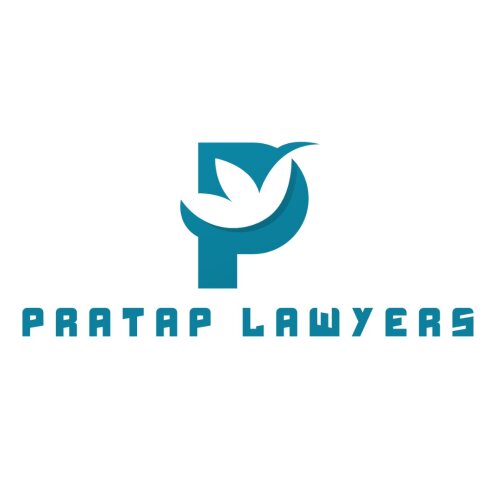Best Tax Increment Financing Lawyers in Suva
Share your needs with us, get contacted by law firms.
Free. Takes 2 min.
List of the best lawyers in Suva, Fiji
About Tax Increment Financing Law in Suva, Fiji
Tax Increment Financing (TIF) is a public financing method that is utilized to subsidize community improvement projects, infrastructure development, and urban redevelopment in Suva, Fiji. This financial mechanism allows municipal governments to use projected future gains in tax revenue to fund current improvements, ultimately meant to grow the district’s economy and increase property values. In Suva, TIF agreements are instrumental for revitalizing undeveloped or underdeveloped areas to boost economic growth and increase local employment opportunities.
Why You May Need a Lawyer
Engaging a lawyer skilled in TIF can be beneficial for several reasons:
- If you are a property developer seeking to understand or negotiate a TIF agreement to fund your project.
- For guidance in compliance with local regulations and in obtaining necessary approvals from governmental bodies.
- If you are a property owner affected by a TIF district and wish to understand its potential impacts on property taxes and value.
- To resolve disputes that may arise during or after project completion within a TIF district.
Local Laws Overview
Tax Increment Financing in Suva operates under several key legislative frameworks that stakeholders must understand:
- Local Government Act: Provides the framework for the establishment and operation of TIF districts.
- Financial Management Act: Governs the fiduciary duties involved in TIF fund management.
- Land Development Act: Outlines procedures for land acquisition and development within TIF zones.
- Environmental Management Act: Ensures that TIF projects comply with local environmental standards and regulations.
Frequently Asked Questions
What is the purpose of a TIF district?
A TIF district is created to stimulate economic development, improve infrastructure, and enhance property values in a designated area by using the future tax gains from increased property values due to the development to fund the project today.
How does Tax Increment Financing work?
TIF works by freezing the current tax base of a TIF district. As the property values increase due to development, the incremental tax revenue is used to finance redevelopment projects within the district.
What types of projects can be funded through TIF?
Eligible projects may include infrastructure improvements, public facilities, residential, commercial, or industrial developments designed to boost economic activity in the area.
Who qualifies to apply for TIF funding?
Typically, local government bodies or private developers working in partnership with municipal authorities qualify for TIF funding.
Are there risks associated with TIF?
Yes, risks include the potential for lower-than-anticipated tax revenue, which can affect the ability to repay TIF bonds, or displacement of residents due to increased property values and taxes.
How long does a TIF district last?
The lifespan of a TIF district can vary, but it generally lasts for a period sufficient to repay the bonds used to fund the project, often ranging between 20 to 30 years.
How is TIF revenue generated?
TIF revenue is generated from the increase in property tax revenue that results from the rise in property values in the district due to the redevelopment efforts.
What is the role of local governments in TIF?
Local governments are responsible for establishing TIF districts, approving projects, monitoring compliance with regulations, and managing the collection and allocation of TIF revenues.
Can TIF funds be used for any type of project?
No, TIF funds are restricted to projects that are specified within the TIF plan and that are deemed to contribute significantly to the economic viability of the district.
How can I find out if my property is within a TIF district?
You can contact the city planning department or review local government publications to determine if your property is within a TIF district.
Additional Resources
To gain more insights and support regarding TIF, consider contacting the following:
- Department of Town and Country Planning: Offers guidance on land use and development regulations.
- Suva City Council: Provides information on local TIF districts and related projects.
- Fiji Revenue and Customs Service: Explains the tax implications of TIF and related benefits.
- Legal Practitioners: Qualified legal professionals with experience in property and financial law related to TIF agreements.
Next Steps
If you require legal assistance concerning TIF, consider the following steps:
- Consult with a lawyer who specializes in property development or municipal finance law.
- Research experienced local law firms with a history of handling TIF projects.
- Gather all relevant documents related to your issue, including communications with government agencies, project proposals, and financial models.
- Prepare a list of questions or concerns you have about the process to discuss during your consultation.
Taking these steps will help ensure that you receive informed legal guidance tailored to your specific situation and needs.
Lawzana helps you find the best lawyers and law firms in Suva through a curated and pre-screened list of qualified legal professionals. Our platform offers rankings and detailed profiles of attorneys and law firms, allowing you to compare based on practice areas, including Tax Increment Financing, experience, and client feedback.
Each profile includes a description of the firm's areas of practice, client reviews, team members and partners, year of establishment, spoken languages, office locations, contact information, social media presence, and any published articles or resources. Most firms on our platform speak English and are experienced in both local and international legal matters.
Get a quote from top-rated law firms in Suva, Fiji — quickly, securely, and without unnecessary hassle.
Disclaimer:
The information provided on this page is for general informational purposes only and does not constitute legal advice. While we strive to ensure the accuracy and relevance of the content, legal information may change over time, and interpretations of the law can vary. You should always consult with a qualified legal professional for advice specific to your situation.
We disclaim all liability for actions taken or not taken based on the content of this page. If you believe any information is incorrect or outdated, please contact us, and we will review and update it where appropriate.
















